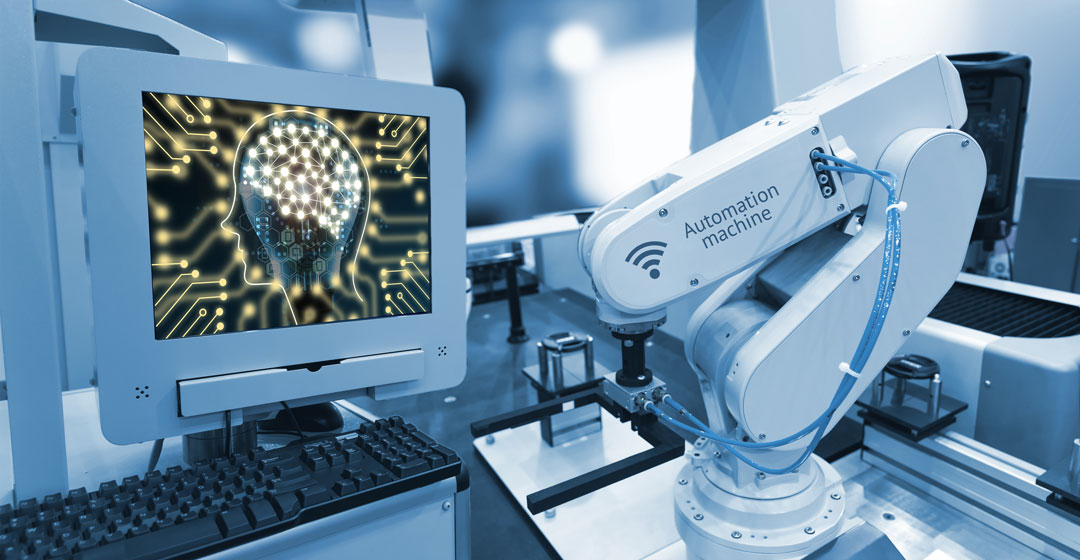In this special blog series, Digital Transformation & the Evolving Role of ERP, we’ll discuss ERP’s new place at the heart of Manufacturing’s digital transformation. From business analytics to artificial intelligence and the Internet of things (IoT), you’ll learn about the cutting-edge technologies disrupting how manufacturers do business.

These are the very early – and very exciting – days of AI in the business world. Experts are still unable to predict the reach of its effects, as developers see endless applications across industries. For manufacturers, one certain opportunity for AI is its integration with ERP software. Together, the technologies are expected to deliver the following benefits to savvy manufacturers who are ready to take the plunge.
Smarter Business Intelligence
While it has long been relied upon as a data aggregator, ERP software will have the capacity to deliver even more complex insights when paired with artificial intelligence. AI technologies allow larger data sets to be analyzed, including historical data. This can be especially valuable for conducting predictive analysis or making recommendations based on established patterns among past behaviors. For instance, an AI-enabled ERP system could look at several years’ worth of past sales during fair-weather versus harsh winters to help anticipate inventory needs for the next holiday season.
Automated Workflow Management
On average, workers spend about one-fifth of their time looking for information or a colleague to help execute a given task. AI-enabled ERP systems could help minimize these headaches by providing an intelligent framework to automate workflows. This is often a gradual process, begun with a user making a decision that triggers a series of actions that is recorded by the software. The next time that same decision must be made, the system could make a recommendation based on previous user behavior. Once the recommendations have been vetted and approved, the system could take that action automatically, with users reviewing exceptions as they arise. The result? Workers who are free to focus on activities that demand expertise and creative thinking rather than laborious, mundane tasks.
A Competitive Edge
As technologies evolve, so, too, must an organization’s skills in leveraging them. In the years ahead, competitive companies will invest in replacing legacy ERP systems with advanced software that can be updated to keep pace with emerging functionality. Forward-thinking manufacturers are already beginning to design pilot projects for AI-enabled ERP. Those who embrace AI as an integrated part of ERP software will find it to be a critical tool for optimizing existing processes, enhancing organizational efficiency and ultimately reducing operating costs – altogether, giving them the edge to get ahead, and stay ahead, of the competition.
